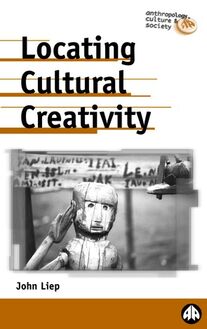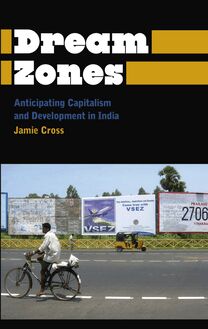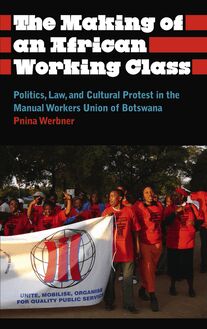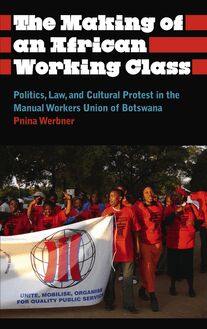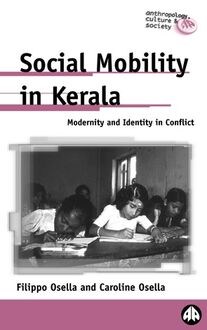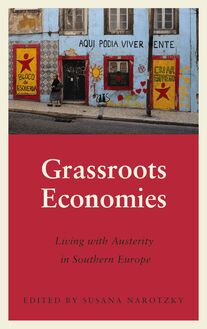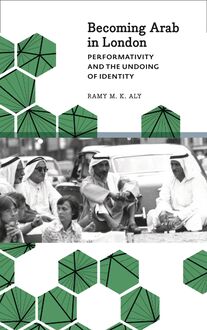Base Encounters , livre ebook
158
pages
English
Ebooks
2016
Vous pourrez modifier la taille du texte de cet ouvrage
Obtenez un accès à la bibliothèque pour le consulter en ligne En savoir plus
Découvre YouScribe en t'inscrivant gratuitement
Découvre YouScribe en t'inscrivant gratuitement
158
pages
English
Ebooks
2016
Vous pourrez modifier la taille du texte de cet ouvrage
Obtenez un accès à la bibliothèque pour le consulter en ligne En savoir plus
Publié par
Date de parution
20 avril 2016
Nombre de lectures
1
EAN13
9781783717712
Langue
English
Poids de l'ouvrage
2 Mo
The Korean peninsula is one of the most heavily militarised regions in the world and the conflict between the North and South is continually exacerbated by the presence of nearly 30,000 US soldiers in the area. Crimes committed in GI entertainment areas have been amplified by an outraged public as both a symbol for, and a symptom of, the uneven relationship between the United States and the small East Asian nation.
Elisabeth Schober's ethnographic history scrutinises these controversial zones in and near Seoul. Sharing the lives of soldiers, female entertainers and anti-base activists, she gives a comprehensive introduction to the social, economic and political factors that have contributed to the tensions over US bases in South Korea.
List of Figures
Series Preface
Notes on the Text
Notes on Transliteration
Acknowledgements
1. Introduction: Violent Imaginaries and Base Encounters in Seoul
2. Capitalism of the Barracks: Korea’s Long March to the Twenty-First Century
3. 'The Colonized Bodies of Our Women...': Camptown Spaces as Vital Zones of the National Imagination
4. Vil(l)e Encounters: Transnational Militarized Entertainment Areas on the Fringes of Korea
5. It‘aewon's Suspense: Of American Dreams, Violent Nightmares and Guilty Pleasures in the City
6. Demilitarizing the Urban Entertainment Zone?: Hongdae and the U.S. Armed Forces in the Seoul Capital Area
7. Conclusion: Seeds of Antagonism, Children of Discord
Notes
References
Index
Publié par
Date de parution
20 avril 2016
Nombre de lectures
1
EAN13
9781783717712
Langue
English
Poids de l'ouvrage
2 Mo
Base Encounters
Anthropology, Culture and Society
Series Editors: Professor Vered Amit, Concordia University Doctor Jamie Cross, University of Edinburgh and Professor Christina Garsten, Stockholm University
Recent titles:
Becoming Arab in London: Performativity and the Undoing of Identity R AMY M. K. A LY
Community, Cosmopolitanism and the Problem of Human Commonality V ERED A MIT AND N IGEL R APPORT
In Foreign Fields: The Politics and Experiences of Transnational Sport Migration T HOMAS F. C ARTER
Dream Zones: Anticipating Capitalism and Development in India J AMIE C ROSS
A History of Anthropology Second Edition T HOMAS H YLLAND E RIKSEN AND F INN S IVERT N IELSEN
Ethnicity and Nationalism: Anthropological Perspectives Third Edition T HOMAS H YLLAND E RIKSEN
Fredrik Barth: An Intellectual Biography T HOMAS H YLLAND E RIKSEN
Small Places, Large Issues: An Introduction to Social and Cultural Anthropology Fourth Edition T HOMAS H YLLAND E RIKSEN
At the Heart of the State: The Moral World of Institutions D IDIER F ASSIN ET AL.
Discordant Development: Global Capitalism and the Struggle for Connection in Bangladesh K ATY G ARDNER
Anthropology and Development: Challenges for the Twenty-first Century K ATY G ARDNER AND D AVID L EWIS
Organisational Anthropology: Doing Ethnography in and Among Complex Organisations E DITED BY C HRISTINA G ARSTEN AND A NETTE N YQVIST
Border Watch: Cultures of Immigration, Detention and Control A LEXANDRA H ALL
Anthropology’s World: Life in a Twenty-First Century Discipline U LF H ANNERZ
Humans and Other Animals: Cross-cultural Perspectives on Human–Animal Interactions S AMANTHA H URN
Flip-Flop: A Journey Through Globalisation’s Backroads C AROLINE K NOWLES
The Anthropology of Security: Perspectives from the Frontline of Policing, Counter-Terrorism and Border Control E DITED BY M ARK M AGUIRE , C ATARINA F ROIS AND N ILS Z URAWSKI
The Gloss of Harmony: The Politics of Policy Making in Multilateral Organisations E DITED BY B IRGIT M ÜLLER
Contesting Publics: Feminism, Activism, Ethnography L YNNE P HILLIPS AND S ALLY C OLE
Food For Change: The Politics and Values of Social Movements J EFF P RATT AND P ETER L UETCHFORD
Checkpoint, Temple, Church and Mosque: A Collaborative Ethnography of War and Peace J ONATHAN S PENCER , J ONATHAN G OODHAND , S HAHUL H ASBULLAH , B ART K LEM , B ENEDIKT K ORF AND K ALINGA T UDOR S ILVA
Race and Ethnicity in Latin America Second Edition P ETER W ADE
The Capability of Places: Methods for Modelling Community Response to Intrusion and Change S ANDRA W ALLMAN
The Making of an African Working Class: Politics, Law and Cultural Protest in the Manual Workers’ Union of Botswana P NINA W ERBNER
Base Encounters
The US Armed Forces in South Korea
Elisabeth Schober
First published 2016 by Pluto Press 345 Archway Road, London N6 5AA
www.plutobooks.com
Copyright © Elisabeth Schober 2016
The right of Elisabeth Schober to be identified as the author of this work has been asserted by her in accordance with the Copyright, Designs and Patents Act 1988.
British Library Cataloguing in Publication Data A catalogue record for this book is available from the British Library
ISBN 978 0 7453 3610 7 Hardback
ISBN 978 0 7453 3605 3 Paperback
ISBN 978 1 7837 1770 5 PDF eBook
ISBN 978 1 7837 1772 9 Kindle eBook
ISBN 978 1 7837 1771 2 EPUB eBook
This book is printed on paper suitable for recycling and made from fully managed and sustained forest sources. Logging, pulping and manufacturing processes are expected to conform to the environmental standards of the country of origin.
Typeset by Stanford DTP Services, Northampton, England
Simultaneously printed in the European Union and United States of America
To Elisabeth Katschnig-Fasch, who left way too soon, but stayed long enough to inspire.
Contents
List of Figures
Series Preface
Notes on the Text
Notes on Transliteration
Acknowledgments
1 Introduction: Violent Imaginaries and Base Encounters in Seoul
“A Certain Neighborhood …”
An Anthropology of Militarism
GI Crimes and the Public Imagination
The Urban Setting of Seoul
Violent Imaginaries as Social Practice
Soldiers and Contentious Sexual Encounters
The Structure of this Book
2 Capitalism of the Barracks: Korea’s Long March to the 21st Century
Nation(s)-in-Arms
“A Shrimp Amongst Whales” (1895–1960)
Militarized Modernity and Capitalism of the Barracks (1961–87)
De-militarizing the Garrison State? (1980–)
3 “The Colonized Bodies of Our Women …”: Camptown Spaces as Vital Zones of the National Imagination
“Our People United!”
“Our Nation’s Daughter”—The Yun Kŭm-i Murder
Tongduch’ŏn as Endangering and Endangered Space
Camptown Fiction: Minjung Appropriations of US Entertainment Spaces
Amplifying the Camptowns: Women’s Bodies and National Boundaries
The Stigma of Miscegenation
Remembering Yun Kŭm-i, Forgetting her Sisters?
4 Vil(l)e Encounters: Transnational Militarized Entertainment Areas on the Fringes of Korea
In the Shadow of the Base
Camptown Residents: Hopeful Actors or Preoccupied Persons?
Transnational Migration Circuits into the Entertainment Industry and Debates on Sex Trafficking
Foreign Camptown Women and their Management of Stigma: “Until the Whole House Is Finished”
Camptown Preoccupations: “Marry a Nice GI …”
Villes as Captured Spaces
5 It’aewŏn’s Suspense: Of American Dreams, Violent Nightmares, and Guilty Pleasures in the City
Militarized Masculinities at Play
“Special District It’aewŏn”: Of Containment and Fermentation
Liberalizing It’aewŏn: A Street of One’s Own?
It’aewŏn Suspense: Space of Pleasure, Realm of Fear
A Really Violent Bunch?
It’aewŏn(’s) Freedom
6 Demilitarizing the Urban Entertainment Zone? Hongdae and the US Armed Forces in the Seoul Capital Area
Spoiling the Show?
Hongdae’s Forbidden Fruits
Yanggongju Revisited: “Are Western Bastards that Good?”
“Sexual Harassment of National Proportions”
Anti-militarist Punks in Hongdae
From Hongdae to Taechuri
Exit the Demilitarized Zone, Enter the Temporary Autonomous Zone?
7 Conclusion: Seeds of Antagonism, Children of Discord
Notes
References
Index
List of Figures
1.1 Map of the Korean peninsula
1.2 Chongno entertainment district in downtown Seoul
1.3 Partial panorama view over Seoul
2.1 Military parade in Seoul on Armed Forces Day (October 1, 2008)
2.2 Performance against mandatory military service in South Korea undertaken by pacifists in downtown Seoul
3.1 Map of the Greater Seoul area
3.2 Quiet afternoon in a camptown north of Seoul
4.1 Fenced-off US military installation
4.2 A group of servicemen in a kijich’on
5.1 Map of inner-city Seoul
5.2 A side street of It’aewŏn (nearby Homo Hill)
5.3 “Hooker Hill” in It’aewŏn
6.1 The Hongdae Norit’ŏ (playground)
6.2 Live music show in Hongdae
7.1 Connecting places, changing speeds
Series Preface
Anthropology is a discipline based upon in-depth ethnographic works that deal with wider theoretical issues in the context of particular, local conditions—to paraphrase an important volume from the series: large issues explored in small places . This series has a particular mission: to publish work that moves away from an old-style descriptive ethnography that is strongly area-studies oriented, and offer genuine theoretical arguments that are of interest to a much wider readership, but which are nevertheless located and grounded in solid ethnographic research. If anthropology is to argue itself a place in the contemporary intellectual world, then it must surely be through such research.
We start from the question: ‘What can this ethnographic material tell us about the bigger theoretical issues that concern the social sciences?’ rather than ‘What can these theoretical ideas tell us about the ethnographic context?’ Put this way round, such work becomes about large issues, set in a (relatively) small place, rather than detailed description of a small place for its own sake. As Clifford Geertz once said, ‘Anthropologists don’t study villages; they study in villages.’
By place, we mean not only geographical locale, but also other types of ‘place’—within political, economic, religious or other social systems. We therefore publish work based on ethnography within political and religious movements, occupational or class groups, among youth, development agencies, and nationalist movements; but also work that is more thematically based—on kinship, landscape, the state, violence, corruption, the self. The series publishes four kinds of volume: ethnographic monographs; comparative texts; edited collections; and shorter, polemical essays.
We publish work from all traditions of anthropology, and all parts of the world, which combines theoretical debate with empirical evidence to demonstrate anthropology’s unique position in contemporary scholarship and the contemporary world.
Professor Vered Amit Dr Jamie Cross Professor Christina Garsten
Notes on the Text
Excerpts from the introduction and conclusion have previously been published as ‘Vil(l)e Encounters: The US Armed Forces in Korea and Entertainment Districts in and near Seoul’, in R. Frank, J.E. Hoare, P. Köllner, and S. Pares (eds) Korea 2011: Politics, Economy and Society , Korea Yearbook, Vol. 5 (Leiden: Brill), pp. 207–32. An earlier version of chapter 3 has previously been published as “‘The Colonized Bodies of Our Women …’: Imaginative and Material Terrains of US Military Entertainment on the Fringes of South Korea”, in G. Frerks, R.S. König, and A. Ypeij (eds) Gender and Conflict: Embodiments, Discourses and Symbolic Practices (London: Ashgate, 2014), pp. 133–50. A modified version of chapter 6 has been published as “Itaewon’s Suspense: Masculinities, Place-making and the US Armed Forces in a Seoul Entertainment District”, Social Anthropology/Anthropologie Sociale 22(1): 36–51.
Notes on Transliteration
The Romaniza
